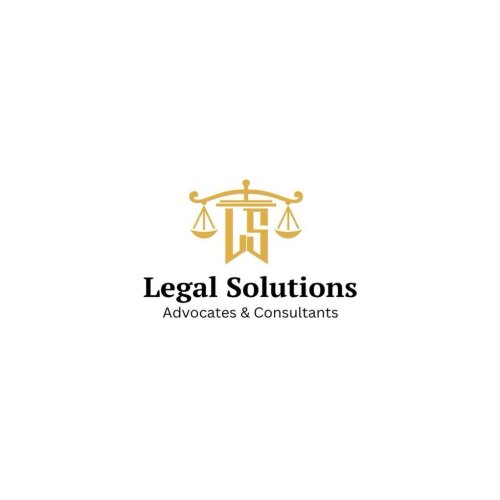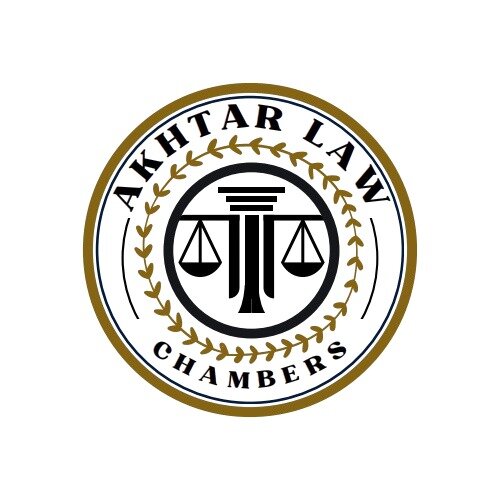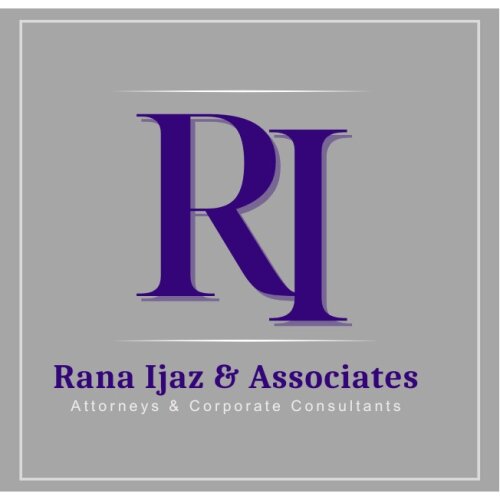Best Data Center & Digital Infrastructure Lawyers in Pakistan
Share your needs with us, get contacted by law firms.
Free. Takes 2 min.
Or refine your search by selecting a city:
List of the best lawyers in Pakistan
About Data Center & Digital Infrastructure Law in Pakistan
Data Center and Digital Infrastructure are the backbone of Pakistan’s rapidly growing digital economy. Data centers house servers, networking equipment, and storage systems critical for operating online services, cloud computing, financial transactions, smart cities, government platforms, and telecom networks. The legal landscape for data centers and digital infrastructure is evolving to keep up with increasing demand, data privacy requirements, cybersecurity challenges, and international best practices. In Pakistan, legal frameworks addressing data protection, digital transactions, information security, and the regulation of technology service providers all play a role in shaping how data centers are established, maintained, and operated.
Why You May Need a Lawyer
There are several situations where individuals, businesses, or organizations may require legal help regarding Data Center and Digital Infrastructure in Pakistan. These include:
- Setting up or expanding a data center - navigating regulatory approvals and compliance requirements.
- Drafting and negotiating contracts with technology vendors, telecom companies, or cloud service providers.
- Addressing issues related to data protection, privacy, and cross-border data transfers.
- Managing risks associated with cybersecurity incidents or data breaches.
- Resolving disputes over service levels, uptime, or intellectual property rights.
- Understanding tax incentives, import duties, or free zone regulations applicable to digital infrastructure projects.
- Complying with sector-specific regulations, such as those from the Pakistan Telecommunication Authority (PTA) or State Bank of Pakistan (SBP) for financial services infrastructure.
- Ensuring environmental and zoning compliance during the construction or retrofitting of data centers.
Having legal guidance helps ensure that your projects and operations are not only compliant but also protected from avoidable risks and liabilities.
Local Laws Overview
Pakistan’s legal environment for Data Center and Digital Infrastructure involves multiple laws and authorities. Key areas include:
- Personal Data and Privacy: The Personal Data Protection Bill (pending legislation), Prevention of Electronic Crimes Act, 2016 (PECA) provides for unauthorized access and protection of data.
- Regulation of Digital Service Providers: PTA issues licenses for internet, telecom, and data hosting operations, including requirements for keeping certain data within Pakistan.
- Cybersecurity: PECA outlines requirements for cybersecurity practices, mandatory reporting of cyber incidents, and penalties for non-compliance.
- Intellectual Property: Protection of software, digital platforms, and proprietary technology used within infrastructure are governed by copyright and patent laws.
- Taxation and Customs: Special zones (e.g., Special Technology Zones Authority - STZA) may offer incentives for data center investments, with related tax or import policy considerations.
- Environmental and Building Codes: Environmental Protection Agency (EPA) requirements for power, cooling systems, and electrical load management apply to constructing and operating data centers.
Understanding these legal points is essential for compliance and long-term success of any digital infrastructure project in Pakistan.
Frequently Asked Questions
What laws regulate data centers in Pakistan?
Data centers in Pakistan are regulated under a combination of laws including the Prevention of Electronic Crimes Act, 2016, PTA regulations, upcoming data protection legislation, and sector-specific directives such as from the SBP for financial data hosting.
Is it legal to store international data in Pakistani data centers?
Yes, but there are compliance requirements, especially regarding cross-border data flows. Sensitive data may be subject to local storage mandates or require approval from relevant authorities before being transferred abroad.
Are there incentives for setting up data centers in Pakistan?
Yes, entities like the Special Technology Zones Authority (STZA) offer incentives such as tax holidays, one-window clearances, and relaxed import duties for equipment brought in for digital infrastructure projects.
What are the privacy requirements for handling personal data?
While the comprehensive Personal Data Protection Bill is still pending, current provisions under PECA and PTA directives require data handlers to protect personal data, gain consent for its use, and report breaches promptly.
Who licenses data center operations in Pakistan?
The Pakistan Telecommunication Authority (PTA) generally oversees the licensing and regulation of data, internet, and telecom infrastructure, though specific permits may also be needed from local municipal or provincial bodies.
What are the penalties for failing to comply with cybersecurity regulations?
Penalties under PECA include significant fines and, in severe cases, imprisonment. Non-compliance with PTA or SBP directives can lead to revocation of licenses or regulatory sanctions.
Can foreign companies own and operate data centers in Pakistan?
Yes, foreign entities can own and operate data centers subject to compliance with investment regulations, security clearances, and PTA licensing, among other requirements.
What contracts are essential for data center operations?
Key contracts include service level agreements (SLAs), hosting agreements, cloud service provider contracts, vendor and supply agreements, and maintenance contracts, all needing careful legal review.
Is data localization required in Pakistan?
Certain sectors, such as financial services, mandate that specific data remains within Pakistan’s borders. Proposed data protection laws may expand such requirements.
How do environmental regulations impact data centers?
Data centers must comply with building codes, energy usage standards, and cooling system regulations from the Environmental Protection Agency and local authorities, especially for large-scale or high-power installations.
Additional Resources
Here are some resources and organizations that may be useful for anyone seeking information or legal advice regarding Data Center and Digital Infrastructure in Pakistan:
- Pakistan Telecommunication Authority (PTA) - Telecom and digital infrastructure regulation.
- Special Technology Zones Authority (STZA) - Incentives and regulations for tech infrastructure zones.
- Ministry of Information Technology and Telecommunication - National digital policies and frameworks.
- State Bank of Pakistan (SBP) - Guidelines for financial sector technology infrastructure.
- Pakistan Software Export Board (PSEB) - helpful for IT and data center project inquiries.
- Provincial Environmental Protection Agencies - Guidance on environmental approvals and compliance.
- Local chambers of commerce and technology industry associations.
Next Steps
If you need legal assistance regarding Data Center and Digital Infrastructure in Pakistan, consider the following steps:
- Identify the specific legal challenge or requirement you face, such as licensing, compliance, contractual issues, or dispute resolution.
- Gather all relevant documents, contracts, permits, and correspondence related to your project or operation.
- Consult with a legal professional who has expertise in technology law, data privacy, and regulatory compliance in Pakistan.
- Prepare a list of questions and objectives you wish to discuss with your lawyer to make the consultation efficient.
- Stay updated on evolving legal developments, as the regulatory environment for data centers is frequently updated.
Taking proactive legal advice at the outset can help ensure your data center or digital infrastructure project in Pakistan is secure, compliant, and positioned for long-term success.
Lawzana helps you find the best lawyers and law firms in Pakistan through a curated and pre-screened list of qualified legal professionals. Our platform offers rankings and detailed profiles of attorneys and law firms, allowing you to compare based on practice areas, including Data Center & Digital Infrastructure, experience, and client feedback.
Each profile includes a description of the firm's areas of practice, client reviews, team members and partners, year of establishment, spoken languages, office locations, contact information, social media presence, and any published articles or resources. Most firms on our platform speak English and are experienced in both local and international legal matters.
Get a quote from top-rated law firms in Pakistan — quickly, securely, and without unnecessary hassle.
Disclaimer:
The information provided on this page is for general informational purposes only and does not constitute legal advice. While we strive to ensure the accuracy and relevance of the content, legal information may change over time, and interpretations of the law can vary. You should always consult with a qualified legal professional for advice specific to your situation.
We disclaim all liability for actions taken or not taken based on the content of this page. If you believe any information is incorrect or outdated, please contact us, and we will review and update it where appropriate.
Browse data center & digital infrastructure law firms by city in Pakistan
Refine your search by selecting a city.

















